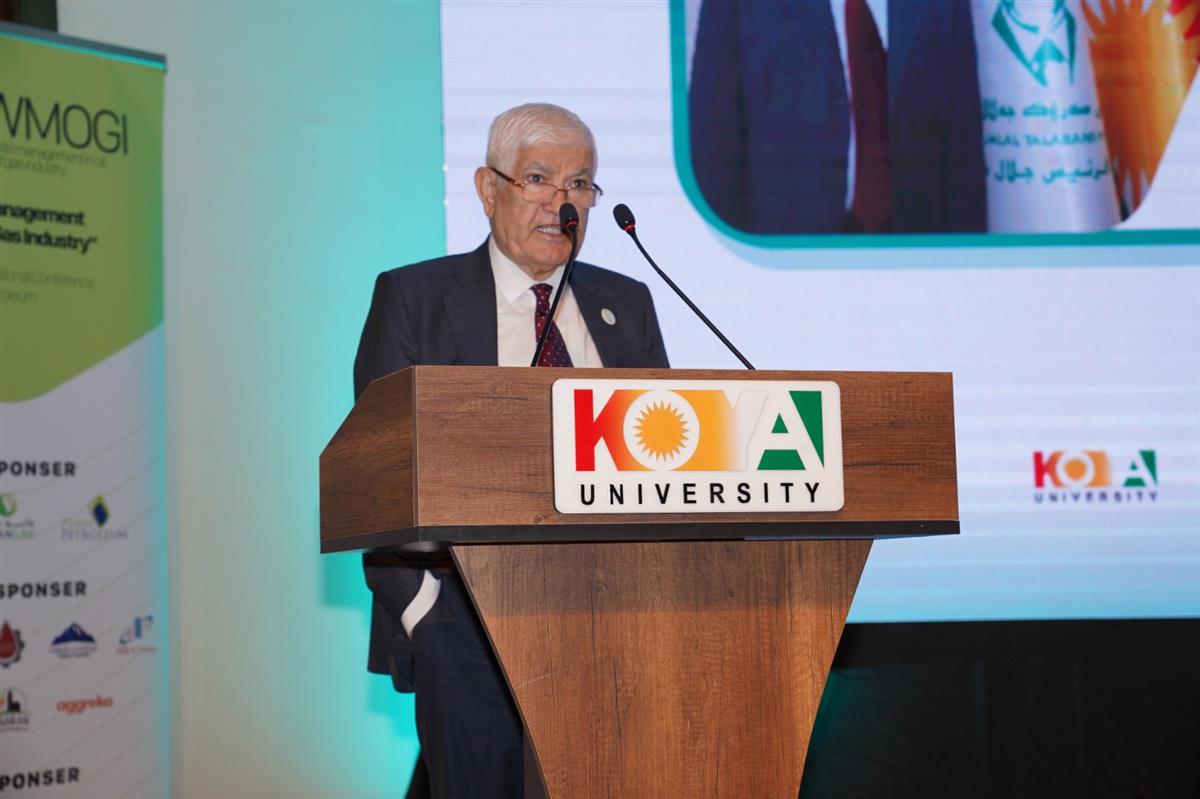Speech by the President of the President Jalal Talabani Foundation at the Third International Conference on Oil and Gas Industry Waste Management
2024-04-28

The Advisor to the Prime Minister for Education and Higher Education Doctor Adanan Ibrahim Al Sarraj
The president of Koya University Doctor Mohammed Zangana
Ladies and teachers while preserving titles and positions
Distinguished Guests,
On behalf of the President Jalal Talabani Foundation, we warmly welcome you
On July 27th, 2022, a spark of hope was ignited when the President Jalal Talabani Foundation (PJTF) was established. The president Jalal Talabani Foundation is a non-profit and non-governmental organization dedicated to preserving the legacy of president Talabani and contribution across various domains of his life, our mission is both sacred and challenging. Our project began with a great mission: to protect, collect, and archive of President Jalal Talabani’s valuable contributions to make sure they are recognized as a national heritage. We are committed to President Jalal Talabani’s principles to improve the cultural, Human rights, gender equality, freedom and democracy, educational, health, and environmental sectors in order to advance our society.
The President Jalal Talabani Foundation is aware that the environmental sector is a crucial area of concern for individuals. Therefore, the foundation is determined to work alongside the government, universities and organizations to address environmental issues through reducing greenhouse gas emissions and waste, promoting recycling, and endorsing environmental education and awareness.
The daily production operations of oil companies involve various stages like exploration, drilling, production, refining, transportation, and distribution, all of which generate pollutants that negatively affect the environment. All of these stages have environmental consequences, alongside the economic damage caused by the pollution.
In the oil industry, both hazardous and non-hazardous waste is generated during operational processes. Key examples include drilling fluids, oil waste, sludge from industrial water treatment units, industrial water, damaged chemicals, empty plastic and metal barrels, chemical material bags, and medical waste from health centers affiliated with oil companies. There are also indirect waste generated from damaged material, such as electronic waste (e.g., computers, phones, printers, photocopy machines), consumed printer ink, spent batteries, and electrical appliances.
Petroleum materials present in oil lakes, whether from production processes or accidental spillage from pipelines or tanks, pose significant environmental and human health risks. There is a potential for these substances to contaminate surface or groundwater sources and agricultural lands, particularly during the rainy season, as well as posing a fire hazard.
It is necessary to enforce compliance with relevant laws, such as the Environmental Protection Law, to ensure the proper treatment of existing waste and prevent the formation of oil lakes or waste in the future.
We believe that organizing such conferences is critical for addressing the environmental challenges caused by the oil and gas industry. We extend our gratitude to Koya University for hosting the third International Conference on Waste Management in the Oil and Gas Industry, and highly this initiative. Hosting such conferences not only highlights the university’s role as a leader in promoting sustainable development but also aligns with the mission of our Foundation to mobilize resources and knowledge to protect our environment and promote the sustainability of our nature resources. With utmost sincerity, we extend our heartfelt congratulations to Koya University, its president and all faculty and staff involved in collaborating with President Jalal Talabani Foundation to organize this international conference.
Thank you
Ambassador Dr. Muhammad Sabir
President of President Jalal Talabani Foundation